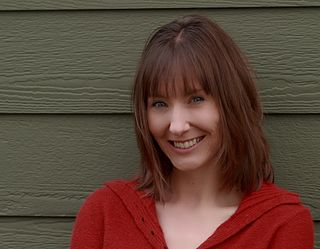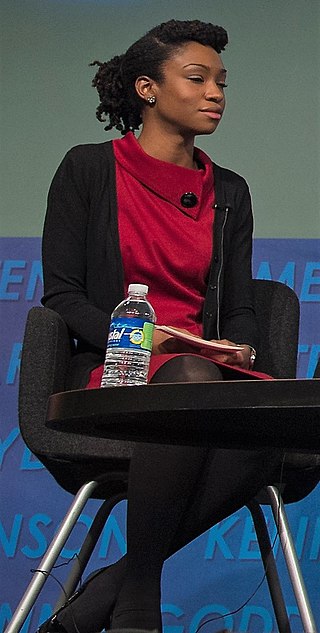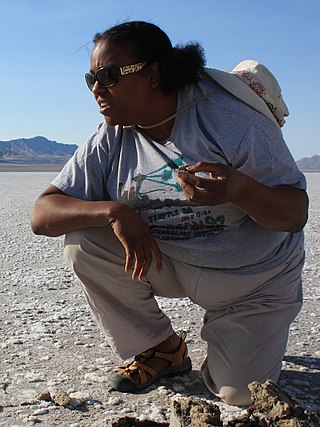Related Research Articles

Geobiology is a field of scientific research that explores the interactions between the physical Earth and the biosphere. It is a relatively young field, and its borders are fluid. There is considerable overlap with the fields of ecology, evolutionary biology, microbiology, paleontology, and particularly soil science and biogeochemistry. Geobiology applies the principles and methods of biology, geology, and soil science to the study of the ancient history of the co-evolution of life and Earth as well as the role of life in the modern world. Geobiologic studies tend to be focused on microorganisms, and on the role that life plays in altering the chemical and physical environment of the pedosphere, which exists at the intersection of the lithosphere, atmosphere, hydrosphere and/or cryosphere. It differs from biogeochemistry in that the focus is on processes and organisms over space and time rather than on global chemical cycles.
The Center for Microbial Oceanography (C-MORE) is a research and education organization established in 2006 as a National Science Foundation funded Science and Technology Center.

Antje Boetius is a German marine biologist. She is a professor of geomicrobiology at the Max Planck Institute for Marine Microbiology, University of Bremen. Boetius received the Gottfried Wilhelm Leibniz Prize in March 2009 for her study of sea bed microorganisms that affect the global climate. She is also the director of Germany's polar research hub, the Alfred Wegener Institute.

Felisa Wolfe-Simon is an American microbial geobiologist and biogeochemist. In 2010, Wolfe-Simon led a team that discovered GFAJ-1, an extremophile bacterium that they claimed was capable of substituting arsenic for a small percentage of its phosphorus to sustain its growth, thus advancing the remarkable possibility of non-RNA/DNA-based genetics. However, these conclusions were immediately debated and criticized in correspondence to the original journal of publication, and were widely disbelieved by scientists. In 2012, two reports refuting the most significant aspects of the original results were published in the same journal in which the original findings had been previously published.

Trista Vick-Majors is an American Assistant Professor in Biological Sciences at Michigan Tech. She is an Antarctic biogeochemist and microbial ecologist, best known for her work showing that microorganisms are present under the Antarctic ice sheet.
Victoria J. Orphan is a geobiologist at the California Institute of Technology who studies the interactions between marine microorganisms and their environment. As of 2020, she is the Chair for the Center of Environmental Microbial Interactions.
Mary Ann Moran is a distinguished research professor of marine sciences at the University of Georgia in Athens. She studies the role of bacteria in Earth's marine nutrient cycles, and is a leader in the fields of marine sciences and biogeochemistry. Her work is focused on how microbes interact with dissolved organic matter and the impact of microbial diversity on the global carbon and sulfur cycles. By defining the roles of diverse bacteria in the carbon and sulfur cycles, she connects the biogeochemical and organismal approaches in marine science.

Julie Ancis currently is a Distinguished Professor of Informatics at the New Jersey Institute of Technology. She served as the interim chair of the Department of Informatics and was also a Professor of Psychology and the inaugural Director of Cyberpsychology at the New Jersey Institute of Technology. She was previously a professor at Georgia State University for 15 years and Associate Vice President of Diversity at Georgia Institute of Technology. Ancis is an expert in the areas of cyberpsychology, multicultural competence and diversity. She has authored 4 books and over 80 scholarly publications.
Ann Pearson is the PVK Professor of Arts and Sciences and Murray and Martha Ross Professor of Environmental Sciences at Harvard University and former chair of the Department of Earth and Planetary Sciences. Her research in the area of organic geochemistry is focused on applications of analytical chemistry, isotope geochemistry, and microbiology to biogeochemistry and Earth history.

Kathy Pham is a Vietnamese American computer scientist and product management executive. She has held roles in leadership, engineering, product management, and data science at Google, IBM, the Georgia Tech Research Institute, Harris Healthcare, and served as a founding product and engineering member of the United States Digital Service (USDS) in the Executive Office of the President of the United States at The White House. Pham was the Deputy Chief Technology Officer for Product and Engineering at the Federal Trade Commission, and the inaugural Executive Director of the National AI Advisory Committee.

Samantha "Mandy" Joye is an American oceanographer who is well known for her work studying the Deepwater Horizon Oil Spill. She is a professor at the University of Georgia in the Department of Marine Sciences. Joye has made fundamental contributions in ocean biogeochemistry and microbial ecology, and is also regularly called upon by scientific and policy agencies as well as the media for expert commentary on ocean ecology. She was the expedition scientist and a lead science advisor for The Deep episode, part of the BBC's Blue Planet II, and is featured in production videos including Brine Pools: Exploring an Alien World for Blue Planet II and Future of the Oceans. She led the “Ecosystem Impacts of Oil and Gas in the Gulf” research consortium between 2014 and 2020 and conducts research to understand relationships between biogeochemical cycles, microbial activity, and environmental factors in many diverse ocean environments.

Dawn Yvonne Sumner is an American geologist, planetary scientist, and astrobiologist. She is a professor at the University of California, Davis. Sumner's research includes evaluating microbial communities in Antarctic lakes, exploration of Mars via the Curiosity rover, and characterization of microbial communities in the lab and from ancient geologic samples. She is an investigator on the NASA Mars Science Laboratory (MSL) and was Chair of the UC Davis Department of Earth & Planetary Sciences from 2014 to 2016. She is Fellow of the Geological Society of America.
Julia Kubanek is a Professor in the Schools of Biological Sciences and of Chemistry & Biochemistry in the College of Sciences at the Georgia Institute of Technology. She is also the Vice President for Interdisciplinary Research for Georgia Tech. She is also Co-Director of the Aquatic Chemical Ecology Center and member of the American Association for the Advancement of Science, the American Chemical Society, the Association for the Sciences of Limnology and Oceanography, the International Society of Chemical Ecology, the International Society for the Study of Harmful Algae and the American Association of Underwater Science

Shannon Gabrielle Valley is an American climate scientist and policy advisor. She is based at Georgia Tech, where she studies the climate history of planet Earth. She worked as a liaison between the White House and NASA Headquarters for the Obama administration. In 2020 Valley was appointed to Joe Biden's NASA transition team.
Martha Anne Grover is an American chemical engineer who is a professor and chair of graduate studies at the Georgia Tech School of Chemical and Biomolecular Engineering. Her research considers molecular self assembly and the emergence of biological functions.

Kennda Lian Lynch is an American astrobiologist and geomicrobiologist who studies polyextremophiles. She has primarily been affiliated with NASA. She identifies environments on Earth with characteristics that may be similar to environments on other planets, and creates models that help identify characteristics that would indicate an environment might host life. Lynch also identifies what biosignatures might look like on other planets. Much of Lynch's research on analog environments has taken place in the Pilot Valley Basin in the Great Salt Desert of northwestern Utah, U.S. Her work in that paleolake basin informed the landing location of NASA's Perseverance Rover mission—at another paleolake basin called Jezero Crater. Jim Green, Chief Scientist at NASA, called Lynch "a perfect expert to be involved in the Perseverance rover." Helping to select the proper landing site for NASA's first crewed mission to Mars in 2035 is another of Lynch's projects. Lynch has appeared in multiple television series, as well as The New York Times, Nature, Scientific American, and Popular Science. Cell Press designated Lynch one of the most inspiring Black scientists in the United States.
Loren Dean Williams is a biophysicist, biochemist, astrobiologist, and professor in the School of Chemistry and Biochemistry at the Georgia Institute of Technology in Atlanta, Georgia. His research seeks to understand the structural basis for macromolecular reactions, from the role of nucleic acids as targets of chemotherapeutics to the ancestral biochemistry of the ribosome during the origin of life.
Ariel Anbar is an isotope geochemist and President's Professor at Arizona State University. He has published over 180 refereed papers on topics ranging from the origins of Earth's atmosphere to detecting life on other worlds to diagnosing human disease.

Ronald Oremland was an American microbiologist, astrobiologist, and emeritus senior scientist at the United States Geological Survey. He authored over 200 papers on the microbiology of extreme habitats.
Laura Cadonati is an American physicist who specializes in gravitational waves.
References
- ↑ "2021 AGU Section Awardees and Named Lecturers". Eos. 10 September 2021. Retrieved 2021-09-10.
- ↑ "Jennifer Glass Named 2021 American Society for Microbiology Award Laureate | College of Sciences | Georgia Institute of Technology | Atlanta, GA". cos.gatech.edu. 28 August 2020. Retrieved 2021-07-19.
- ↑ "Jennifer Glass, PhD Geological Sciences (2011) | School of Earth and Space Exploration". sese.asu.edu. Retrieved 2021-07-19.
- ↑ "Unlocking the Mystery of Methane Clathrates | College of Sciences | Georgia Institute of Technology | Atlanta, GA". cos.gatech.edu. 14 November 2018. Retrieved 2021-07-19.
- ↑ "Jennifer Glass". scholar.google.com. Retrieved 2021-07-19.
- ↑ "How Did Life Learn to Breathe?". Eos. 17 September 2018. Retrieved 2021-07-19.
- ↑ "Microbes and Methane: Unlocking Clathrate 'Crystal Cages' with Chilly Protein Cocktails, Created from Deep Biosphere Bacteria | College of Sciences | Georgia Institute of Technology | Atlanta, GA". cos.gatech.edu. Retrieved 2021-07-19.
- ↑ "Stripping the linchpins from the life-making machine reaffirms its seminal evolution: A daring experiment corroborates translational system's place at earliest foundations of life on Earth". ScienceDaily. Retrieved 2021-08-01.
- 1 2 3 Google Scholar Author page, Accessed Sept.20, 2021
- ↑ "#GeoGRExit: Why Geosciences Programs Are Dropping the GRE". Eos. 4 June 2020. Retrieved 2021-07-19.
- ↑ "What purple can tell us about life on other planets". CNN. 2017-08-04. Retrieved 2021-07-19.
- ↑ McElvery, Raleigh. "Microbes are siphoning massive amounts of carbon from Earth's tectonic plates". Science | AAAS. Retrieved 2021-07-19.